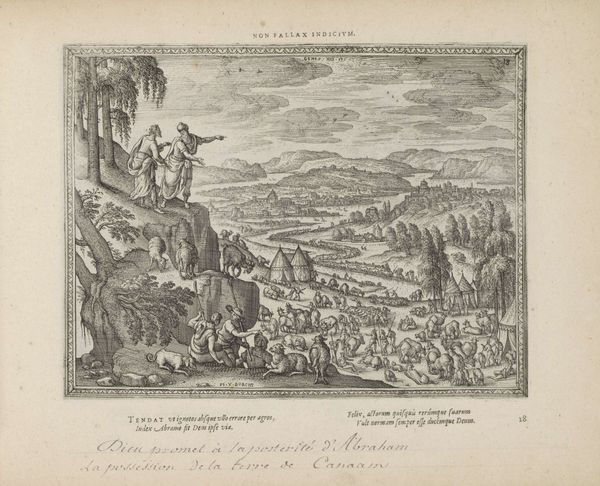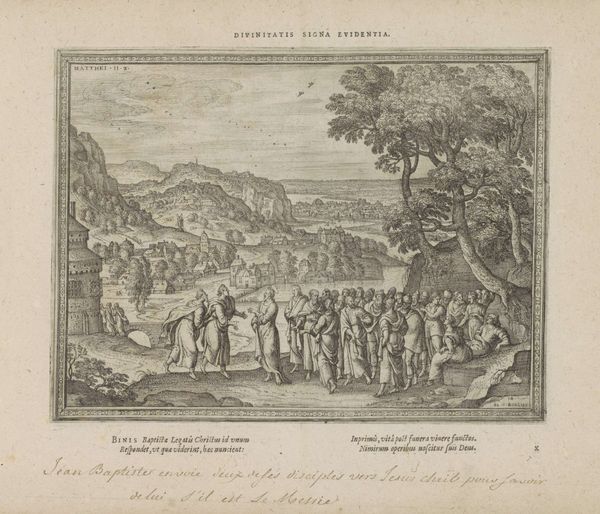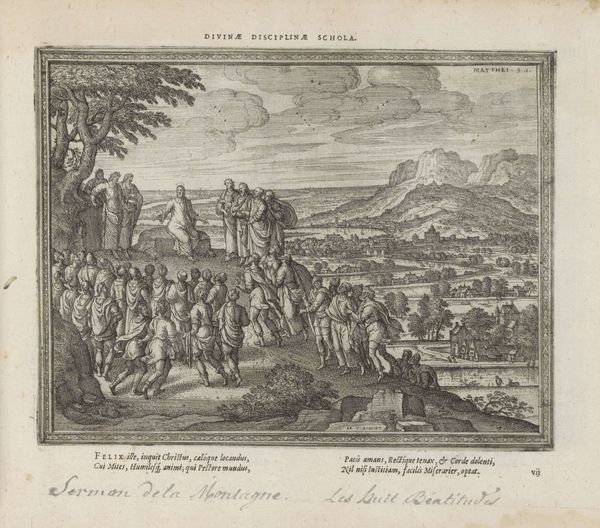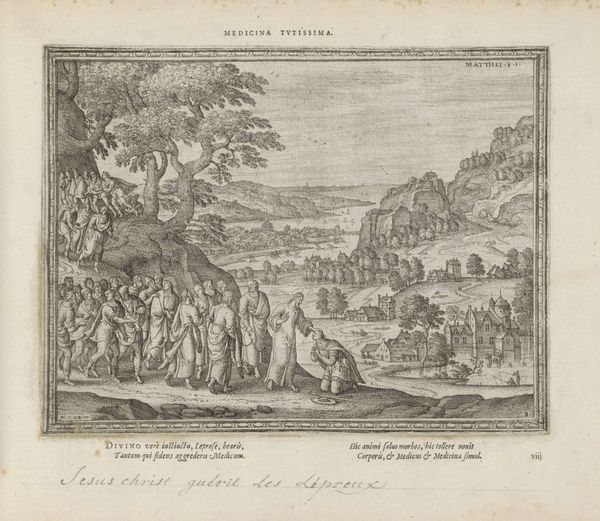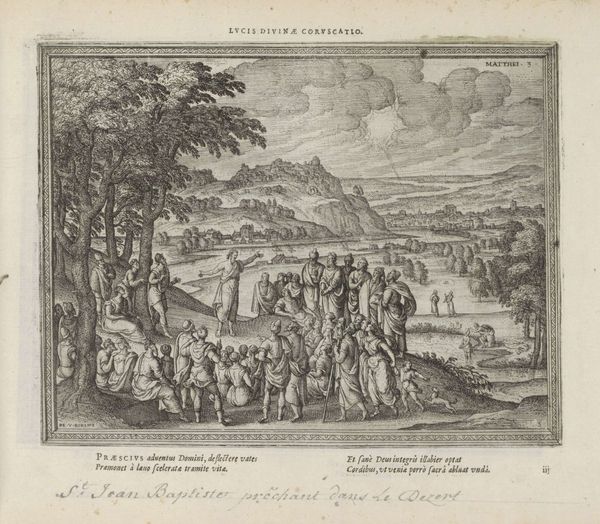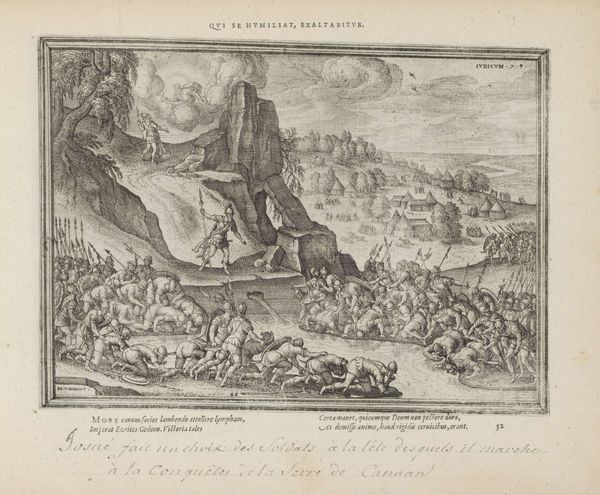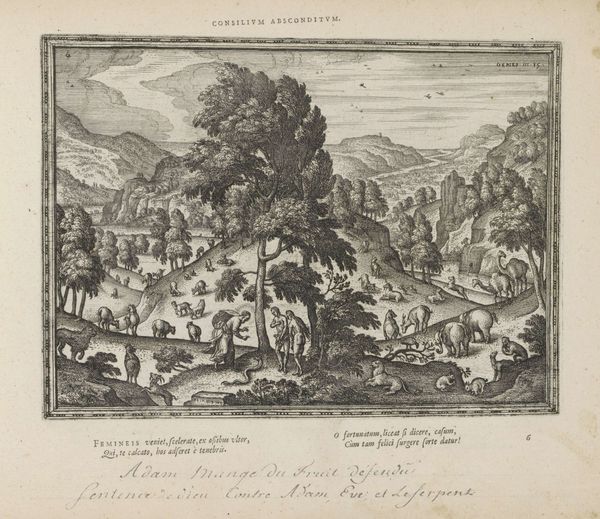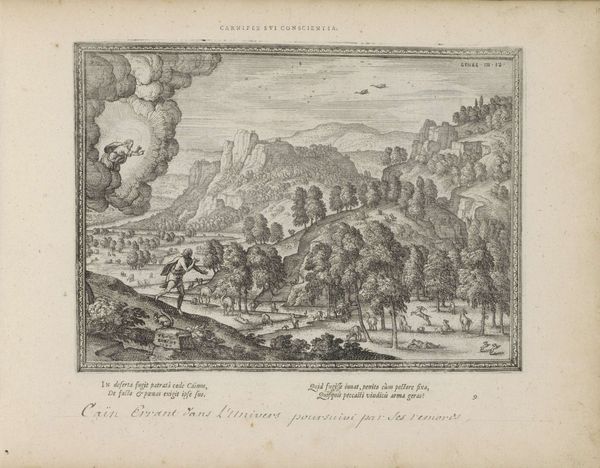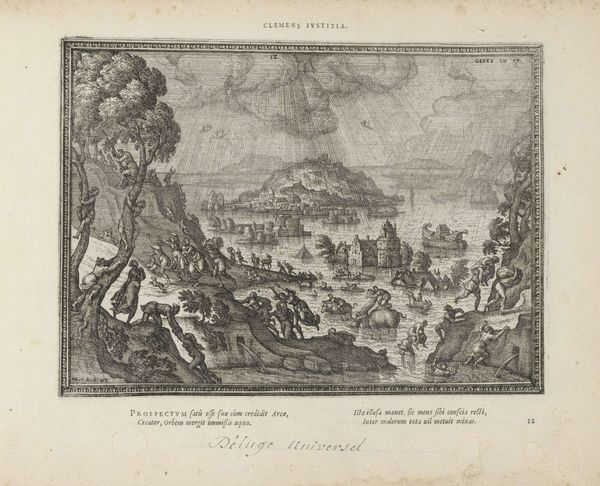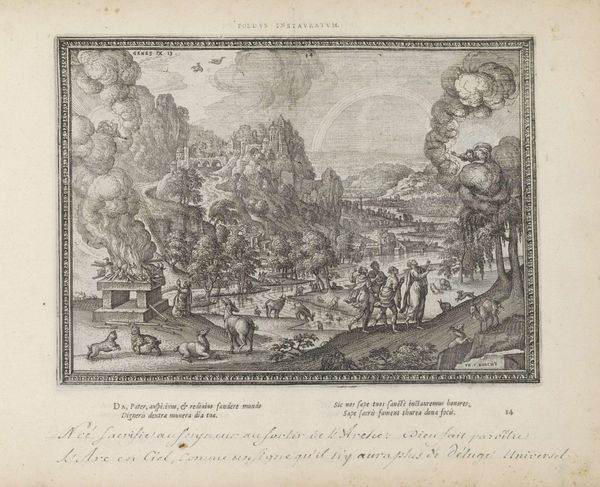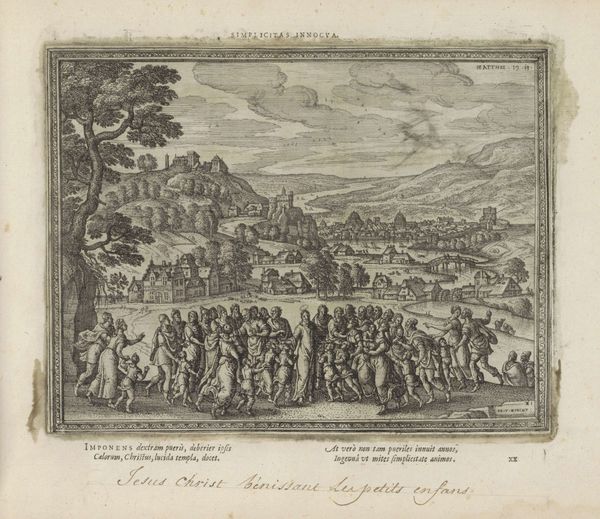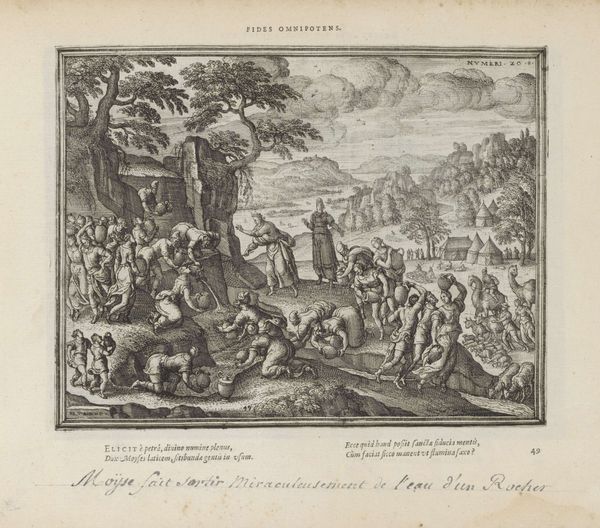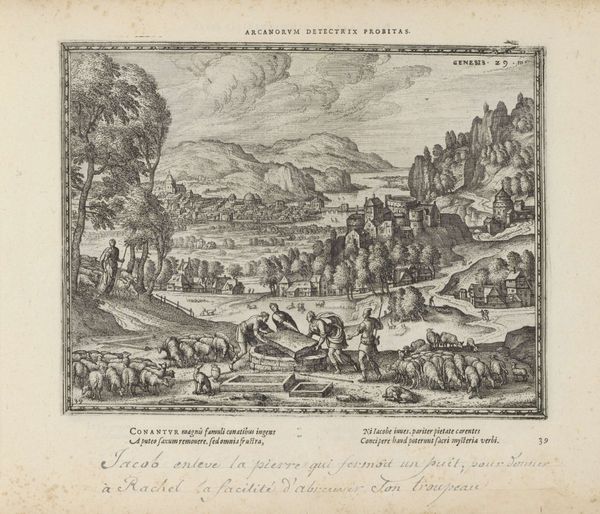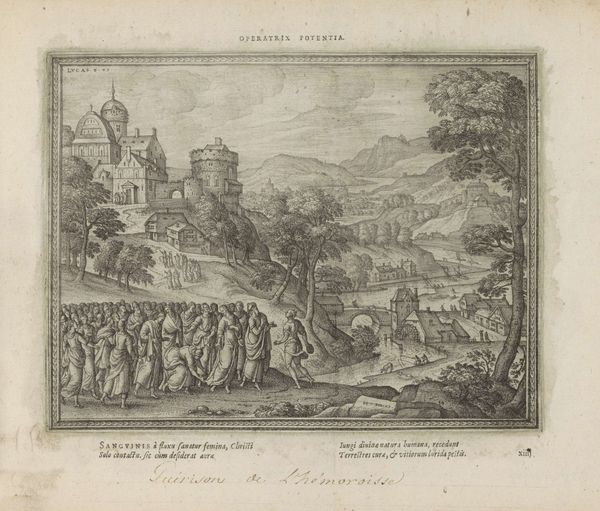
print, etching
#
narrative-art
# print
#
etching
#
landscape
#
river
#
mannerism
#
personal sketchbook
#
history-painting
Dimensions: height 182 mm, width 253 mm
Copyright: Rijks Museum: Open Domain
This is Pieter van der Borcht the Elder's "Landscape with the Sacrifice of Isaac," an engraving made in the Netherlands around 1600. The image depicts the Old Testament story of Abraham's willingness to sacrifice his son Isaac to prove his faith in God, but it also contains a broader reflection on the relationship between religious belief and the natural world, a theme prevalent in Netherlandish art of this era. Van der Borcht's work participates in the tradition of landscape art, where the natural environment is used to convey symbolic and moral meanings. In the late 16th century, the Netherlands was undergoing significant religious and political upheaval. The rise of Protestantism challenged the authority of the Catholic Church, and the Dutch Revolt against Spanish rule was in full swing. In this context, an image such as "Landscape with the Sacrifice of Isaac" could be seen as a commentary on the nature of faith, obedience, and sacrifice. The cultural, political, and religious context of the time shaped the way artists like Van der Borcht approached their work, imbuing it with layers of meaning that resonate with the social structures of their own time. By studying historical texts, religious treatises, and artistic conventions, we gain a richer appreciation for the complex interplay of social, religious, and artistic forces that shaped Van der Borcht's engraving.
Comments
No comments
Be the first to comment and join the conversation on the ultimate creative platform.
